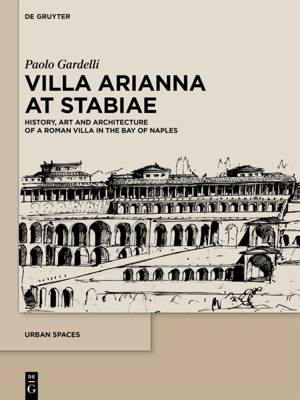
- Retrait gratuit dans votre magasin Club
- 7.000.000 titres dans notre catalogue
- Payer en toute sécurité
- Toujours un magasin près de chez vous
- Retrait gratuit dans votre magasin Club
- 7.000.000 titres dans notre catalogue
- Payer en toute sécurité
- Toujours un magasin près de chez vous
Villa Arianna at Stabiae
History, Art and Architecture of a Roman Villa in the Bay of Naples
Paolo GardelliDescription
The archaeological investigation and the architectural survey conducted at Villa Arianna at Stabiae between 2010 and 2019 form the core of this book. The author's motivation to start on a large-scale study began with the wall constructions, paintings, and mosaics that have gradually been uncovered over the years. His book offers an in-depth comprehension of the history, the decorations, and the construction dynamics of the building from its foundation as country villa to the eruption of Mount Vesuvius in 79 CE. For the first time it provides a synthesis of the archaeological evidence, the ancient texts and the journals of the Bourbon age excavations. The first part of the book is divided into four narrative chapters, which unearth essential environmental and historical-archaeological information. The second part consists of three chapters and the conclusion. They evaluate the results of the recent excavations and the evidence obtained from the study of the archaeological findings. The book offers a rare diachronic and synchronic biography of this unique villa. It offers students, scholars, and enthusiasts alike profound first-hand insights into Roman archaeology and one of its material manifestations, the Roman villa.
Spécifications
Parties prenantes
- Auteur(s) :
- Editeur:
Contenu
- Nombre de pages :
- 452
- Langue:
- Anglais
- Collection :
- Tome:
- n° 10
Caractéristiques
- EAN:
- 9783111338989
- Date de parution :
- 21-10-24
- Format:
- Livre relié
- Format numérique:
- Genaaid
- Dimensions :
- 218 mm x 287 mm
- Poids :
- 1791 g

Les avis
Nous publions uniquement les avis qui respectent les conditions requises. Consultez nos conditions pour les avis.






